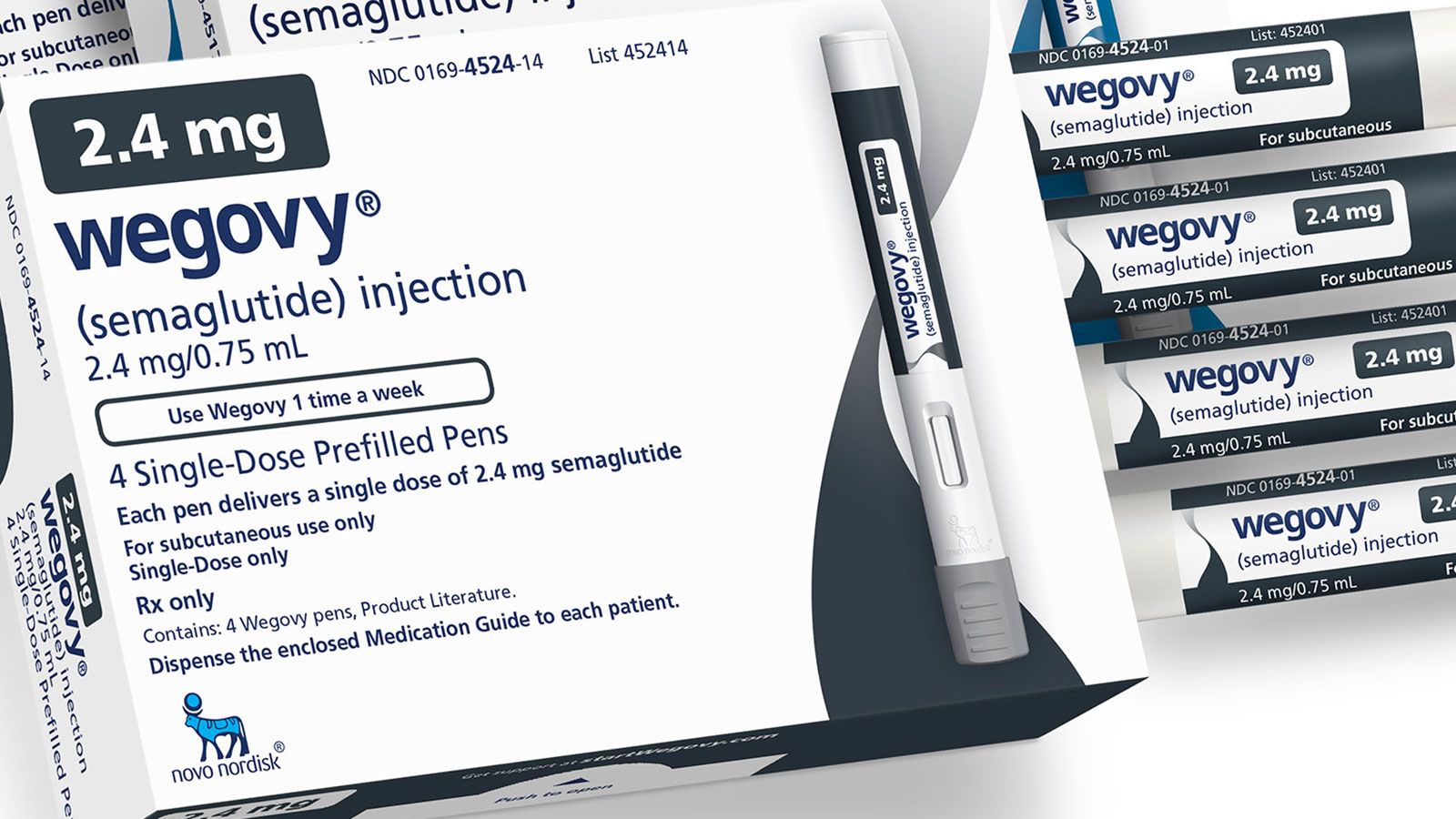One of the leading new drugs for obesity, Wegovy, was found in a study funded by its manufacturer to improve symptoms and enhance the quality of life for patients with obesity and preserved ejection fraction heart failure, suggesting that these medications can offer health benefits beyond weight loss.
Published in The New England Journal of Medicine on Friday, the study assessed Wegovy in individuals with preserved ejection fraction heart failure, a condition where the heart pumps normally but has lost flexibility in filling with blood—a condition responsible for about half of all heart failure cases.
Participants receiving Wegovy showed greater improvements in physical fitness and symptoms like fatigue and shortness of breath compared to those receiving a placebo.
Although the study focused on symptom relief rather than cardiac emergencies, it noted that 12 placebo patients versus only one on Wegovy required hospitalization or urgent medical visits for heart failure over the year-long trial involving 529 participants.
The study highlighted Wegovy’s superior efficacy in alleviating heart failure symptoms compared to existing treatments.
Dr. Mikhail Kosiborod, the lead investigator and a cardiologist at Saint Luke’s Mid America Heart Institute in Kansas City, noted, “This is a huge patient population that is extremely symptomatic, for which we’ve had very few if any treatment options, and in which obesity is highly prevalent.”
Traditionally, obesity was viewed as merely coexisting with heart failure. However, this study reinforces obesity as a primary driver of the disease.
Dr. Kosiborod emphasized, “It’s a proof of concept that in many patients with this type of heart failure, where obesity is in fact causal, it needs to be treated as a root cause of heart failure and needs to be targeted as a therapeutic strategy.”
Another ongoing study is assessing Wegovy’s impact on heart failure patients with obesity and diabetes, with Novo Nordisk indicating potential formal recommendations for heart failure treatment pending positive outcomes.
Although experts not involved in the trial stressed the importance of longer-term, larger-scale studies to assess hospitalization and mortality rates, they acknowledged the significant improvements observed in physical limitations and symptoms among patients in the trial.

Wegovy recipients reported approximately eight points greater improvement in symptom-related quality of life and physical capabilities compared to placebo recipients on a 100-point scale. Additionally, those on Wegovy showed greater gains in a six-minute walk test.
Dr. Daniel Drucker, a senior scientist at the Lunenfeld Tanenbaum Research Institute in Toronto, commented on the study’s findings, noting,
“It’s a short trial, and so we can’t say much about long-term sustained benefits, but I think the magnitude of the benefit is impressive relative to what other interventions have shown in the same population.”
Wegovy and its diabetes variant, Ozempic, have gained popularity for their substantial weight loss results, although Novo Nordisk has faced challenges meeting demand.
Recent studies, including the heart failure trial, have underscored Wegovy’s broader health benefits beyond weight reduction, such as reducing heart complication risks by 20% among another patient cohort, prompting considerations for wider insurance coverage of these new weight loss therapies.
Dr. Ania Jastreboff, an endocrinologist and obesity medicine specialist at Yale University, underscored the broader implications: “Obesity is associated with 200 other obesity-related diseases.
If we treat this one disease, we can potentially impact the health of so many patients in many different ways, and this is yet another important example.”
While weight loss likely contributed to improved heart health in patients, further research is needed to elucidate Wegovy’s mechanisms, including its potential anti-inflammatory effects and impact on heart failure markers.
“We still need to understand that better,” Dr. Kosiborod concluded.
